Corea del Norte dice prueba de misiles simuló ataque a campos de aviación surcoreanos
miércoles 20 de julio de 2016 15:42 GYT Imprimir [-] Texto [+]
Varias piezas de artillería abren fuego en una localización desconocida en Corea del Norte, en una foto cedida por la agencia estatal de noticias de Corea del Norte KCNA, el pasado 25 de marzo de 2016. Corea del Norte dijo el miércoles que llevó a cabo una prueba de misiles balísticos que simuló ataques preventivos contra puertos y aeródromos surcoreanos utilizados por el Ejército de Estados Unidos, en una probable referencia al lanzamiento de tres proyectiles el martes. REUTERS/KCNA
1 de 1Tamaño Completo
Por Jack Kim
SEÚL (Reuters) - Corea del Norte dijo el miércoles que llevó a cabo una prueba de misiles balísticos que simuló ataques preventivos contra puertos y aeródromos surcoreanos utilizados por el Ejército de Estados Unidos, en una probable referencia al lanzamiento de tres proyectiles el martes.
El líder norcoreano, Kim Jong Un, supervisó un ejercicio que probó con éxito la detonación simulada de ojivas nucleares colocadas sobre misiles, reportó la agencia oficial de noticias KCNA.
La agencia no informó cuándo ocurrió el ejercicio, ya que normalmente reporta las actividades de Kim sin dar fechas o ubicaciones.
Rodong Sinmun, el periódico oficial del gobernante Partido de los Trabajadores, tomó fotografías de Kim en las que aparentemente observaba un ejercicio con misiles balísticos junto a asesores militares.
Corea del Norte disparó el martes tres proyectiles balísticos que volaron por entre 500 y 600 kilómetros sobre el mar frente a su costa este, dijo el Ejército de Corea del Sur, en la última de una serie de acciones provocadoras por parte del aislado país tras una serie de pruebas con armas nucleares.
Yang Uk, un importante investigador del Foro Surcoreano de Defensa y Seguridad y asesor político de la marina surcoreana, dijo que había poca evidencia firme para sugerir que Pyongyang tuvo éxito en desarrollar una ojiva nuclear para los misiles.
El lanzamiento de misiles del martes fue considerado una demostración de fuerza una semana después de que Corea del Sur y Estados Unidos eligieron un lugar en el sur para desplegar el sistema antimisiles THAAD (Sistema de Defensa Terminal de Área a Gran Altitud) para contrarrestar las amenazas del norte.
Corea del Norte ha amenazado con "una respuesta física" a la acción.
Jueves 21/07/16 Indicadores lideres, Ventas casas existentes
45 mensajes
• Página 2 de 3 • 1, 2, 3
Re: Jueves 21/07/16 Indicadores lideres, Ventas casas existe
Los gráficos del día, 
.

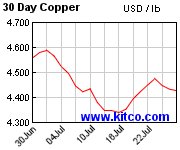
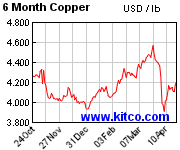
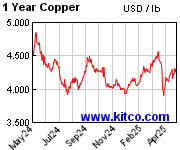
.

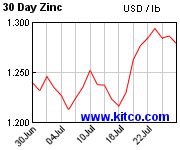
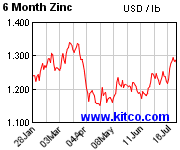
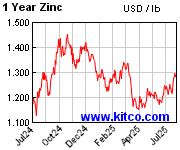
.

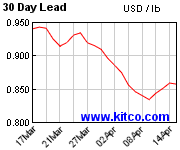
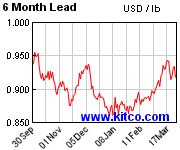
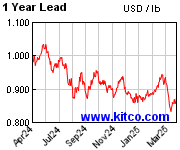
.

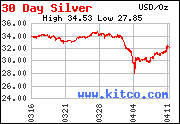
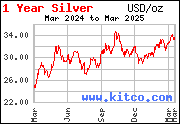
.

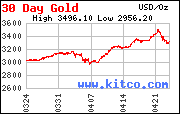
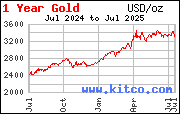
.
.




.




.




.



.



.
- Comodoro
- Mensajes: 980
- Registrado: Jue May 06, 2010 8:24 am
- Ubicación: LIMA
Re: Jueves 21/07/16 Indicadores lideres, Ventas casas existe
Los futures del Dow Jones 20 puntos a la baja.
- admin
- Site Admin
- Mensajes: 165589
- Registrado: Mié Abr 21, 2010 9:02 pm
Re: Jueves 21/07/16 Indicadores lideres, Ventas casas existe
Crecimiento económico de China se ralentizaría a un 6,5 pct en el 2016 pese a medidas de apoyo
jueves 21 de julio de 2016 06:13 GYT Imprimir
Por Elias Glenn
PEKÍN (Reuters) - El crecimiento económico de China se ralentizaría a un 6,5 por ciento este año, en el extremo inferior del rango meta de Pekín, aún en momentos en que el Gobierno intensifica las medidas de apoyo, según un sondeo de Reuters.
La presión sobre la segunda economía más grande del mundo por la debilidad de sus exportaciones y un exceso de capacidad industrial está aumentado los riesgos para las autoridades, que desean garantizar el fortalecimiento del empleo y evitar consecuencias más severas del fuerte endeudamiento en el país.
"La economía aún enfrenta problemas estructurales, como el exceso de la oferta inmobiliaria y la sobrecapacidad. Cualquier política para estimular la inversión no será indefinida y, finalmente, el crecimiento económico reanudará su tendencia a la baja", dijeron economistas de Nomura en una nota de investigación reciente.
El pronóstico promedio en un sondeo de Reuters entre 60 economistas realizado en la última semana es de una expansión de un 6,5 por ciento en el 2016 -la más débil en un cuarto de siglo- y una desaceleración adicional a un 6,3 por ciento en el 2017.
Las previsiones no se han modificado a partir de una encuesta realizada en abril.
El pronóstico más alto del Producto Interno Bruto chino en la encuesta fue de un 6,8 por ciento para este año y el más bajo fue de un 6,0 por ciento.
Pekín ha fijado un objetivo de crecimiento entre un 6,5 y un 7 por ciento para este año. La economía china se expandió un 6,9 por ciento en el 2015.
La Oficina Nacional de Estadísticas dijo la semana pasada que la economía china creció un 6,7 por ciento en el segundo trimestre de este año, un poco más rápido que lo esperado y sin cambios respecto al primer trimestre del 2016.
jueves 21 de julio de 2016 06:13 GYT Imprimir
Por Elias Glenn
PEKÍN (Reuters) - El crecimiento económico de China se ralentizaría a un 6,5 por ciento este año, en el extremo inferior del rango meta de Pekín, aún en momentos en que el Gobierno intensifica las medidas de apoyo, según un sondeo de Reuters.
La presión sobre la segunda economía más grande del mundo por la debilidad de sus exportaciones y un exceso de capacidad industrial está aumentado los riesgos para las autoridades, que desean garantizar el fortalecimiento del empleo y evitar consecuencias más severas del fuerte endeudamiento en el país.
"La economía aún enfrenta problemas estructurales, como el exceso de la oferta inmobiliaria y la sobrecapacidad. Cualquier política para estimular la inversión no será indefinida y, finalmente, el crecimiento económico reanudará su tendencia a la baja", dijeron economistas de Nomura en una nota de investigación reciente.
El pronóstico promedio en un sondeo de Reuters entre 60 economistas realizado en la última semana es de una expansión de un 6,5 por ciento en el 2016 -la más débil en un cuarto de siglo- y una desaceleración adicional a un 6,3 por ciento en el 2017.
Las previsiones no se han modificado a partir de una encuesta realizada en abril.
El pronóstico más alto del Producto Interno Bruto chino en la encuesta fue de un 6,8 por ciento para este año y el más bajo fue de un 6,0 por ciento.
Pekín ha fijado un objetivo de crecimiento entre un 6,5 y un 7 por ciento para este año. La economía china se expandió un 6,9 por ciento en el 2015.
La Oficina Nacional de Estadísticas dijo la semana pasada que la economía china creció un 6,7 por ciento en el segundo trimestre de este año, un poco más rápido que lo esperado y sin cambios respecto al primer trimestre del 2016.
- admin
- Site Admin
- Mensajes: 165589
- Registrado: Mié Abr 21, 2010 9:02 pm
Re: Jueves 21/07/16 Indicadores lideres, Ventas casas existe
GM mejora pronóstico de ganancias para todo el año tras sólido resultado en 2do trimestre
Por Bernie Woodall y Joseph White
DETROIT (Reuters) - General Motors Co mejoró sus proyecciones de ganancias para todo el año tras reportar un beneficio récord en el segundo trimestre que superó holgadamente las expectativas de Wall Street.
La tercera mayor automotriz a nivel mundial dijo que espera una ganancia ajustada antes de intereses e impuestos de 5,50 a 6,00 dólares por acción para todo el año 2016, desde el panorama anterior de 5,25 a 5,75 dólares por papel.
GM dijo también que sus ganancias en el segundo trimestre ascendieron a 2.870 millones de dólares, o 1,81 dólares por título, frente a 1.100 millones de dólares o 0,67 dólares por acción del mismo trimestre del año pasado.
Más del 90 por ciento de las ganancias antes de impuestos de la empresa se generaron en América del Norte, donde los márgenes de ganancias subieron a un 12,1 por ciento desde el 10,5 por ciento del año previo.
El incremento en los márgenes fue impulsado por la demanda de camionetas 'pickup' y por vehículos utilitarios deportivos grandes.
GM reportó además su primera ganancia trimestral en Europa en cinco años, pero advirtió que el tipo de cambio y los trastornos en los mercados que se produjeron tras la decisión de Reino Unido de separarse de la Unión Europea podrían recortar 400 millones de dólares de sus resultados del segundo semestre en Europa.
Por Bernie Woodall y Joseph White
DETROIT (Reuters) - General Motors Co mejoró sus proyecciones de ganancias para todo el año tras reportar un beneficio récord en el segundo trimestre que superó holgadamente las expectativas de Wall Street.
La tercera mayor automotriz a nivel mundial dijo que espera una ganancia ajustada antes de intereses e impuestos de 5,50 a 6,00 dólares por acción para todo el año 2016, desde el panorama anterior de 5,25 a 5,75 dólares por papel.
GM dijo también que sus ganancias en el segundo trimestre ascendieron a 2.870 millones de dólares, o 1,81 dólares por título, frente a 1.100 millones de dólares o 0,67 dólares por acción del mismo trimestre del año pasado.
Más del 90 por ciento de las ganancias antes de impuestos de la empresa se generaron en América del Norte, donde los márgenes de ganancias subieron a un 12,1 por ciento desde el 10,5 por ciento del año previo.
El incremento en los márgenes fue impulsado por la demanda de camionetas 'pickup' y por vehículos utilitarios deportivos grandes.
GM reportó además su primera ganancia trimestral en Europa en cinco años, pero advirtió que el tipo de cambio y los trastornos en los mercados que se produjeron tras la decisión de Reino Unido de separarse de la Unión Europea podrían recortar 400 millones de dólares de sus resultados del segundo semestre en Europa.
- admin
- Site Admin
- Mensajes: 165589
- Registrado: Mié Abr 21, 2010 9:02 pm
Re: Jueves 21/07/16 Indicadores lideres, Ventas casas existe
Banco Central Europeo deja sin cambios tasas de interés, tal como esperaba el mercado
FRÁNCFORT (Reuters) - El Banco Central Europeo mantuvo el jueves sin cambios sus tasas de interés, tal como estaba previsto, al dejar los costos de endeudamiento en mínimos históricos en su intento por estimular el crecimiento y la inflación de la zona euro.
La decisión de mantener estable la política monetaria fue prevista por los 45 economistas encuestados por Reuters, después de que en marzo el BCE recortó su tasa de depósitos bancarios para llevarla aún más al terreno negativo, expandió sus compras de activos y ofreció un nueva ronda de créditos baratos.
Al final de su reunión del jueves, el BCE decidió mantener su tasa de depósitos bancarios, considerada en general como la principal herramienta de tipos de interés, en -0,40 por ciento.
La tasa referencial, que determina el costo del crédito en la economía, permaneció sin cambios en 0 por ciento, mientras que el tipo de interés para los préstamos de emergencia a bancos siguió en un 0,25 por ciento.
FRÁNCFORT (Reuters) - El Banco Central Europeo mantuvo el jueves sin cambios sus tasas de interés, tal como estaba previsto, al dejar los costos de endeudamiento en mínimos históricos en su intento por estimular el crecimiento y la inflación de la zona euro.
La decisión de mantener estable la política monetaria fue prevista por los 45 economistas encuestados por Reuters, después de que en marzo el BCE recortó su tasa de depósitos bancarios para llevarla aún más al terreno negativo, expandió sus compras de activos y ofreció un nueva ronda de créditos baratos.
Al final de su reunión del jueves, el BCE decidió mantener su tasa de depósitos bancarios, considerada en general como la principal herramienta de tipos de interés, en -0,40 por ciento.
La tasa referencial, que determina el costo del crédito en la economía, permaneció sin cambios en 0 por ciento, mientras que el tipo de interés para los préstamos de emergencia a bancos siguió en un 0,25 por ciento.
- admin
- Site Admin
- Mensajes: 165589
- Registrado: Mié Abr 21, 2010 9:02 pm
Re: Jueves 21/07/16 Indicadores lideres, Ventas casas existe
Bolsas de Asia suben a máximos en 9 meses por fortaleza del crudo
Por Saikat Chatterjee
HONG KONG (Reuters) - Las bolsas de Asia subían el jueves a máximos en nueve meses, apoyadas por una recuperación en los precios del petróleo, y el dólar se fortalecía frente al yen tras un resurgimiento en las expectativas de una subida de las tasas de interés en Estados Unidos este año.
El índice MSCI de acciones asiáticas fuera de Japón sumaba un 0,2 por ciento, su nivel más alto desde octubre del 2015, luego de un repunte de las acciones en Wall Street el miércoles. El referencial asiático ha trepado un 10 por ciento durante el último mes.
En Japón, el índice Nikkei de la bolsa de Tokio sumó un 1 por ciento, ayudado por un yen más débil y por las expectativas de que el Gobierno anunciará nuevas medidas de estímulo.
Medios de comunicación como la agencia Kyodo reportaron que el Gobierno japonés planea un paquete de estímulos de al menos 20 billones de yenes (186.600 millones de dólares) para ayudar a la economía a salir de la deflación y protegerla de los posibles efectos del "Brexit".
El índice dólar, que sigue el desempeño de la moneda estadounidense contra una canasta de seis divisas importantes, se estabilizaba en 96,99 tras saltar el miércoles a 97,323, su nivel más alto desde el 10 de marzo. Frente a la moneda japonesa, el dólar subía un 0,2 por ciento a 107 yenes. El euro avanzaba a 1,1032 dólares.
El Banco Central Europeo se reunirá más tarde en el día, y se espera que mantenga su política monetaria estable.
En los mercados de materias primas, el crudo Brent de Londres se fortalecía levemente a 47,35 dólares por barril, y los futuros del petróleo en Estados Unidos subían un 0,4 por ciento, a 45,86 dólares por barril.
El oro al contado bajaba un 0,1 por ciento, a 1.314,08 dólares la onza.
Por Saikat Chatterjee
HONG KONG (Reuters) - Las bolsas de Asia subían el jueves a máximos en nueve meses, apoyadas por una recuperación en los precios del petróleo, y el dólar se fortalecía frente al yen tras un resurgimiento en las expectativas de una subida de las tasas de interés en Estados Unidos este año.
El índice MSCI de acciones asiáticas fuera de Japón sumaba un 0,2 por ciento, su nivel más alto desde octubre del 2015, luego de un repunte de las acciones en Wall Street el miércoles. El referencial asiático ha trepado un 10 por ciento durante el último mes.
En Japón, el índice Nikkei de la bolsa de Tokio sumó un 1 por ciento, ayudado por un yen más débil y por las expectativas de que el Gobierno anunciará nuevas medidas de estímulo.
Medios de comunicación como la agencia Kyodo reportaron que el Gobierno japonés planea un paquete de estímulos de al menos 20 billones de yenes (186.600 millones de dólares) para ayudar a la economía a salir de la deflación y protegerla de los posibles efectos del "Brexit".
El índice dólar, que sigue el desempeño de la moneda estadounidense contra una canasta de seis divisas importantes, se estabilizaba en 96,99 tras saltar el miércoles a 97,323, su nivel más alto desde el 10 de marzo. Frente a la moneda japonesa, el dólar subía un 0,2 por ciento a 107 yenes. El euro avanzaba a 1,1032 dólares.
El Banco Central Europeo se reunirá más tarde en el día, y se espera que mantenga su política monetaria estable.
En los mercados de materias primas, el crudo Brent de Londres se fortalecía levemente a 47,35 dólares por barril, y los futuros del petróleo en Estados Unidos subían un 0,4 por ciento, a 45,86 dólares por barril.
El oro al contado bajaba un 0,1 por ciento, a 1.314,08 dólares la onza.
- admin
- Site Admin
- Mensajes: 165589
- Registrado: Mié Abr 21, 2010 9:02 pm
Re: Jueves 21/07/16 Indicadores lideres, Ventas casas existe
Brasileña Vale espera producción mineral de hierro alcance nivel más bajo de estimaciones este año
SAO PAULO (Reuters) - La gigante brasileña Vale SA espera que su producción de mineral de hierro en el año llegue al nivel más bajo de sus estimaciones, en una señal de que el mayor productor mundial del metal industrial está controlando efectivamente la actividad de extracción en las instalaciones con menores márgenes.
En un reporte publicado el jueves, Vale dijo que su producción de mineral de hierro alcanzó 86,823 millones de toneladas en el segundo trimestre, lo que representa un descenso de 2,8 por ciento respecto al mismo periodo del año anterior.
Las tendencias de producción en los primeros seis meses del año sugieren que la extracción anual de mineral de hierro terminará el año en un rango de entre 340 millones y 350 millones de toneladas, cerca del punto más bajo de la guía oficial, indicó el reporte.
Vale produjo 345,9 millones de toneladas de mineral de hierro en 2015.
SAO PAULO (Reuters) - La gigante brasileña Vale SA espera que su producción de mineral de hierro en el año llegue al nivel más bajo de sus estimaciones, en una señal de que el mayor productor mundial del metal industrial está controlando efectivamente la actividad de extracción en las instalaciones con menores márgenes.
En un reporte publicado el jueves, Vale dijo que su producción de mineral de hierro alcanzó 86,823 millones de toneladas en el segundo trimestre, lo que representa un descenso de 2,8 por ciento respecto al mismo periodo del año anterior.
Las tendencias de producción en los primeros seis meses del año sugieren que la extracción anual de mineral de hierro terminará el año en un rango de entre 340 millones y 350 millones de toneladas, cerca del punto más bajo de la guía oficial, indicó el reporte.
Vale produjo 345,9 millones de toneladas de mineral de hierro en 2015.
- admin
- Site Admin
- Mensajes: 165589
- Registrado: Mié Abr 21, 2010 9:02 pm
- admin
- Site Admin
- Mensajes: 165589
- Registrado: Mié Abr 21, 2010 9:02 pm
Re: Jueves 21/07/16 Indicadores lideres, Ventas casas existe
Futures a la baja.
Europe Stocks, U.S. Futures Remain Lower as ECB Stands Pat
Stocks in Europe and U.S. futures remained lower Thursday after the European Central Bank kept interest rates unchanged at its first meeting Thursday since the U.K. voted to leave the European Union last month.
U.S. futures pointed to a 0.1% opening loss for the S&P 500 after Wall Street closed at fresh record highs Wednesday. The Stoxx Europe 600 was down 0.3% recently, weighed down by falls in airline shares, after markets in Asia mostly gained.
Global stocks have been on the rise in recent weeks, fueled by a series of data releases underlining the strength of the U.S. economy, company earnings and expectations of further central bank action following the Brexit vote.
Advertisement
Economists hadn’t expected the European Central Bank to boost its stimulus measures Thursday, but many believe ECB President Mario Draghi will signal further action is in the cards at a press conference later in the day.
While the effects of Britain’s vote to leave the EU will be mainly felt in the U.K., a host of issues still put Mr. Draghi “in a tough position,” said Carl Hammer, chief currency strategist at Swedish bank SEB.
In addition to Brexit, Europe is dealing with a wave of recent terror attacks, rising populism, a still-fragile economy and concerns over the health of the Italian banking system, Mr. Hammer said. He expects the ECB to deliver new measures in the fall.
There was further evidence of the heightened focus on central bankers Thursday with the yen jumping sharply against the dollar after Bank of Japan Governor Haruhiko Kuroda said on a prerecorded radio show from mid-June with the British Broadcasting Corp. that there was “no need and no possibility for helicopter money,” government spending funded directly by the central bank.
Expectations of fresh monetary and fiscal stimulus measures from Tokyo, including increasing chatter around helicopter money, had pushed the yen lower in recent days ahead of the BoJ’s meeting next week.
While investors don’t expect fresh measures from the ECB Thursday, they are watching to see whether the bank loosens some of the rules governing its quantitative easing, or QE, program amid concerns it will soon run out of eligible assets to buy.
An asset shortage could prove a problem if the ECB wants to boost stimulus measures at a later date. Many analysts believe officials are reluctant to cut rates further into negative territory over concerns about denting the profitability of Europe’s struggling banking sector.
“I don’t think the ECB will cut rates much further. If they extend easing, they will have to do it through QE,” said Gareth Colesmith, a senior portfolio manager at Insight Investment.
“The problem is they’re running out of bonds,” he said.
Lufthansa jets parked at the airport in Frankfurt. The airline issued a profit warning Thursday.
Lufthansa jets parked at the airport in Frankfurt. The airline issued a profit warning Thursday.Photo: Agence France-Presse/Getty Images
Investors in Europe were also focused on company earnings releases. Airline stocks were under pressure after easyJet PLC reported a fall in sales and Deutsche Lufthansa AG issued a profit warning, sending shares in the latter down over 7%.
Mining shares, meanwhile, climbed following declines earlier this week.
Attention will return later to the U.S. earnings season. Shares in General Motors Co. rose 4.8% in premarket trade after the company said its profit more than doubled.
Shares in eBay Inc. were up around 6% in premarket trade after the company posted its second straight quarter of sales gains after the closing bell Wednesday. Shares in chip maker Qualcomm Inc. gained over 8% in premarket trading after the company reported better-than-expected sales in the latest quarter.
Investors have taken comfort from the largely solid, though unspectacular, earnings posted so far.
“Expectations were on the low side, but I think any news is good news,” said James Davidson, a fund manager at J.P. Morgan Asset Management.
Earnings are giving investors “some reassurance that, for all the Brexit macro uncertainty, life goes on,” said Mr. Davidson, adding the second quarter should be the low point for year-over-year U.S. earnings growth.
In currencies, the euro was roughly flat against the dollar Thursday at $1.1017. The yen was last 0.9% higher against the buck at ¥106.3070.
The ICE U.S. Dollar Index, which measures the greenback against a basket of currencies, fell 0.2%. The index hit a four-month high Wednesday as investors signaled a stronger expectation that the U.S. Federal Reserve would raise interest rates this year.
The yield on the 10-year U.S. Treasury note, meanwhile, rose slightly to 1.598% as prices fell.
Asian bourses mostly ended higher Thursday. Hong Kong’s Hang Seng Index entered bull market territory with a 0.5% rise, taking gains to just over 20% since its mid-February low. Japan’s Nikkei Stock Average ended 0.8% higher and Australia’s S&P ASX 200 was up 0.4%.
In commodities, Brent crude oil was down 0.5% at $46.97 a barrel. Gold slipped slightly to $1,1318 an ounce.
Write to Christopher Whittall at christopher.whittall@wsj.com
Europe Stocks, U.S. Futures Remain Lower as ECB Stands Pat
Stocks in Europe and U.S. futures remained lower Thursday after the European Central Bank kept interest rates unchanged at its first meeting Thursday since the U.K. voted to leave the European Union last month.
U.S. futures pointed to a 0.1% opening loss for the S&P 500 after Wall Street closed at fresh record highs Wednesday. The Stoxx Europe 600 was down 0.3% recently, weighed down by falls in airline shares, after markets in Asia mostly gained.
Global stocks have been on the rise in recent weeks, fueled by a series of data releases underlining the strength of the U.S. economy, company earnings and expectations of further central bank action following the Brexit vote.
Advertisement
Economists hadn’t expected the European Central Bank to boost its stimulus measures Thursday, but many believe ECB President Mario Draghi will signal further action is in the cards at a press conference later in the day.
While the effects of Britain’s vote to leave the EU will be mainly felt in the U.K., a host of issues still put Mr. Draghi “in a tough position,” said Carl Hammer, chief currency strategist at Swedish bank SEB.
In addition to Brexit, Europe is dealing with a wave of recent terror attacks, rising populism, a still-fragile economy and concerns over the health of the Italian banking system, Mr. Hammer said. He expects the ECB to deliver new measures in the fall.
There was further evidence of the heightened focus on central bankers Thursday with the yen jumping sharply against the dollar after Bank of Japan Governor Haruhiko Kuroda said on a prerecorded radio show from mid-June with the British Broadcasting Corp. that there was “no need and no possibility for helicopter money,” government spending funded directly by the central bank.
Expectations of fresh monetary and fiscal stimulus measures from Tokyo, including increasing chatter around helicopter money, had pushed the yen lower in recent days ahead of the BoJ’s meeting next week.
While investors don’t expect fresh measures from the ECB Thursday, they are watching to see whether the bank loosens some of the rules governing its quantitative easing, or QE, program amid concerns it will soon run out of eligible assets to buy.
An asset shortage could prove a problem if the ECB wants to boost stimulus measures at a later date. Many analysts believe officials are reluctant to cut rates further into negative territory over concerns about denting the profitability of Europe’s struggling banking sector.
“I don’t think the ECB will cut rates much further. If they extend easing, they will have to do it through QE,” said Gareth Colesmith, a senior portfolio manager at Insight Investment.
“The problem is they’re running out of bonds,” he said.
Lufthansa jets parked at the airport in Frankfurt. The airline issued a profit warning Thursday.
Lufthansa jets parked at the airport in Frankfurt. The airline issued a profit warning Thursday.Photo: Agence France-Presse/Getty Images
Investors in Europe were also focused on company earnings releases. Airline stocks were under pressure after easyJet PLC reported a fall in sales and Deutsche Lufthansa AG issued a profit warning, sending shares in the latter down over 7%.
Mining shares, meanwhile, climbed following declines earlier this week.
Attention will return later to the U.S. earnings season. Shares in General Motors Co. rose 4.8% in premarket trade after the company said its profit more than doubled.
Shares in eBay Inc. were up around 6% in premarket trade after the company posted its second straight quarter of sales gains after the closing bell Wednesday. Shares in chip maker Qualcomm Inc. gained over 8% in premarket trading after the company reported better-than-expected sales in the latest quarter.
Investors have taken comfort from the largely solid, though unspectacular, earnings posted so far.
“Expectations were on the low side, but I think any news is good news,” said James Davidson, a fund manager at J.P. Morgan Asset Management.
Earnings are giving investors “some reassurance that, for all the Brexit macro uncertainty, life goes on,” said Mr. Davidson, adding the second quarter should be the low point for year-over-year U.S. earnings growth.
In currencies, the euro was roughly flat against the dollar Thursday at $1.1017. The yen was last 0.9% higher against the buck at ¥106.3070.
The ICE U.S. Dollar Index, which measures the greenback against a basket of currencies, fell 0.2%. The index hit a four-month high Wednesday as investors signaled a stronger expectation that the U.S. Federal Reserve would raise interest rates this year.
The yield on the 10-year U.S. Treasury note, meanwhile, rose slightly to 1.598% as prices fell.
Asian bourses mostly ended higher Thursday. Hong Kong’s Hang Seng Index entered bull market territory with a 0.5% rise, taking gains to just over 20% since its mid-February low. Japan’s Nikkei Stock Average ended 0.8% higher and Australia’s S&P ASX 200 was up 0.4%.
In commodities, Brent crude oil was down 0.5% at $46.97 a barrel. Gold slipped slightly to $1,1318 an ounce.
Write to Christopher Whittall at christopher.whittall@wsj.com
- admin
- Site Admin
- Mensajes: 165589
- Registrado: Mié Abr 21, 2010 9:02 pm
Re: Jueves 21/07/16 Indicadores lideres, Ventas casas existe
LAST CHANGE % CHG
DJIA 18551.34 -43.69 -0.23%
Nasdaq 5088.85 -1.08 -0.02%
S&P 500 2170.71 -2.31 -0.11%
Russell 2000 1212.04 2.29 0.19%
Global Dow 2398.20 2.55 0.11%
Japan: Nikkei 225 16810.22 128.33 0.77%
Stoxx Europe 600 340.50 -0.31 -0.09%
UK: FTSE 100 6711.76 -17.23 -0.26%
CURRENCIES10:28 AM EDT 7/21/2016
LAST(MID) CHANGE
Euro (EUR/USD) 1.1003 -0.0013
Yen (USD/JPY) 106.23 -0.66
Pound (GBP/USD) 1.3188 -0.0020
Australia $ (AUD/USD) 0.7491 0.0012
Swiss Franc (USD/CHF) 0.9882 0.0008
WSJ Dollar Index 87.90 -0.08
GOVERNMENT BONDS10:27 AM EDT 7/21/2016
PRICE CHG YIELD
U.S. 10 Year -7/32 1.608
German 10 Year -3/32 0.002
Japan 10 Year -1/32 -0.236
FUTURES10:18 AM EDT 7/21/2016
LAST CHANGE % CHG
Crude Oil 45.63 -0.12 -0.26%
Brent Crude 47.13 -0.04 -0.08%
Gold 1321.6 2.3 0.17%
Silver 19.525 -0.088 -0.45%
E-mini DJIA 18490 -41 -0.22%
E-mini S&P 500 2166
DJIA 18551.34 -43.69 -0.23%
Nasdaq 5088.85 -1.08 -0.02%
S&P 500 2170.71 -2.31 -0.11%
Russell 2000 1212.04 2.29 0.19%
Global Dow 2398.20 2.55 0.11%
Japan: Nikkei 225 16810.22 128.33 0.77%
Stoxx Europe 600 340.50 -0.31 -0.09%
UK: FTSE 100 6711.76 -17.23 -0.26%
CURRENCIES10:28 AM EDT 7/21/2016
LAST(MID) CHANGE
Euro (EUR/USD) 1.1003 -0.0013
Yen (USD/JPY) 106.23 -0.66
Pound (GBP/USD) 1.3188 -0.0020
Australia $ (AUD/USD) 0.7491 0.0012
Swiss Franc (USD/CHF) 0.9882 0.0008
WSJ Dollar Index 87.90 -0.08
GOVERNMENT BONDS10:27 AM EDT 7/21/2016
PRICE CHG YIELD
U.S. 10 Year -7/32 1.608
German 10 Year -3/32 0.002
Japan 10 Year -1/32 -0.236
FUTURES10:18 AM EDT 7/21/2016
LAST CHANGE % CHG
Crude Oil 45.63 -0.12 -0.26%
Brent Crude 47.13 -0.04 -0.08%
Gold 1321.6 2.3 0.17%
Silver 19.525 -0.088 -0.45%
E-mini DJIA 18490 -41 -0.22%
E-mini S&P 500 2166
- admin
- Site Admin
- Mensajes: 165589
- Registrado: Mié Abr 21, 2010 9:02 pm
Re: Jueves 21/07/16 Indicadores lideres, Ventas casas existe
Peru +0.26%
5.10 0.00 2.00
TV US$ 0.65 US$ 0.01 1.56
BVN US$ 12.50 US$ 0.16 1.30
Acciones Ultima cotización (S/.) Var. día (S/.) Var. día (%)
FERREYC1 1.64 -0.05 -2.96
5.10 0.00 2.00
TV US$ 0.65 US$ 0.01 1.56
BVN US$ 12.50 US$ 0.16 1.30
Acciones Ultima cotización (S/.) Var. día (S/.) Var. día (%)
FERREYC1 1.64 -0.05 -2.96
- admin
- Site Admin
- Mensajes: 165589
- Registrado: Mié Abr 21, 2010 9:02 pm
Re: Jueves 21/07/16 Indicadores lideres, Ventas casas existe
Pedidos de subsidios por desempleo en EEUU caen a mínimo en tres meses
WASHINGTON (Reuters) - El número de estadounidenses que solicitó el subsidio por desempleo cayó inesperadamente la semana pasada y alcanzó un mínimo en tres meses, mientras el mercado laboral continúa fortaleciéndose.
Los pedidos iniciales del beneficio estatal para desocupados cayeron en 1.000 a una cifra desestacionalizada de 253.000 en la semana que terminó el 16 de julio, la menor lectura desde abril, informó el jueves el Departamento de Trabajo. Las solicitudes de la semana previa no fueron revisadas.
Las solicitudes están cerca del mínimo en 43 años de 248.000 alcanzadas a mediados de abril. Economistas encuestados por Reuters habían previsto que los pedidos iniciales del subsidio subieran a 265.000 la semana pasada. Las solicitudes se han mantenido debajo de 300.000, un umbral asociado con condiciones saludables del mercado laboral, por 72 semanas consecutivas, el período más largo desde 1973.
WASHINGTON (Reuters) - El número de estadounidenses que solicitó el subsidio por desempleo cayó inesperadamente la semana pasada y alcanzó un mínimo en tres meses, mientras el mercado laboral continúa fortaleciéndose.
Los pedidos iniciales del beneficio estatal para desocupados cayeron en 1.000 a una cifra desestacionalizada de 253.000 en la semana que terminó el 16 de julio, la menor lectura desde abril, informó el jueves el Departamento de Trabajo. Las solicitudes de la semana previa no fueron revisadas.
Las solicitudes están cerca del mínimo en 43 años de 248.000 alcanzadas a mediados de abril. Economistas encuestados por Reuters habían previsto que los pedidos iniciales del subsidio subieran a 265.000 la semana pasada. Las solicitudes se han mantenido debajo de 300.000, un umbral asociado con condiciones saludables del mercado laboral, por 72 semanas consecutivas, el período más largo desde 1973.
- admin
- Site Admin
- Mensajes: 165589
- Registrado: Mié Abr 21, 2010 9:02 pm
Re: Jueves 21/07/16 Indicadores lideres, Ventas casas existe
Jefe del BCE dice es muy pronto para evaluar impacto del "Brexit" en economía zona euro
FRÁNCFORT (Reuters) - El presidente del Banco Central Europeo, Mario Draghi, dijo el jueves que es demasiado pronto para evaluar el impacto que tendría la decisión de Reino Unido de separarse de la Unión Europea en la recuperación económica de la zona euro.
En comentarios emitidos luego que el BCE decidió dejar sin cambios sus tasas de interés y su programa de estímulos, Draghi dijo que la política expansiva del organismo y los compromisos de los bancos centrales de proveer liquidez habían ayudado a "mantener contenidas la tensiones en el mercado" tras el referendo británico.
"Después del referendo de Reino Unido sobre la membresía en la UE, nuestra conclusión es que los mercados financieros del área del euro han enfrentado bien el incremento de la incertidumbre y la volatilidad, con una alentadora capacidad de recuperación", sostuvo Draghi.
Economistas han estado recortando sus estimaciones para el área del euro desde el referendo del 23 de junio, cuyos efectos se han sumado a las preocupaciones por la desaceleración de la economía mundial.
El mes pasado, Draghi dijo a los líderes de la UE que el "Brexit" reduciría la tasa de crecimiento de la zona euro en los próximos tres años en un rango acumulativo de entre 0,3 y 0,5 puntos porcentuales, en comparación a las estimaciones anteriores, indicó un funcionario.
(Editado en español por Marion Giraldo. LEA)
FRÁNCFORT (Reuters) - El presidente del Banco Central Europeo, Mario Draghi, dijo el jueves que es demasiado pronto para evaluar el impacto que tendría la decisión de Reino Unido de separarse de la Unión Europea en la recuperación económica de la zona euro.
En comentarios emitidos luego que el BCE decidió dejar sin cambios sus tasas de interés y su programa de estímulos, Draghi dijo que la política expansiva del organismo y los compromisos de los bancos centrales de proveer liquidez habían ayudado a "mantener contenidas la tensiones en el mercado" tras el referendo británico.
"Después del referendo de Reino Unido sobre la membresía en la UE, nuestra conclusión es que los mercados financieros del área del euro han enfrentado bien el incremento de la incertidumbre y la volatilidad, con una alentadora capacidad de recuperación", sostuvo Draghi.
Economistas han estado recortando sus estimaciones para el área del euro desde el referendo del 23 de junio, cuyos efectos se han sumado a las preocupaciones por la desaceleración de la economía mundial.
El mes pasado, Draghi dijo a los líderes de la UE que el "Brexit" reduciría la tasa de crecimiento de la zona euro en los próximos tres años en un rango acumulativo de entre 0,3 y 0,5 puntos porcentuales, en comparación a las estimaciones anteriores, indicó un funcionario.
(Editado en español por Marion Giraldo. LEA)
- admin
- Site Admin
- Mensajes: 165589
- Registrado: Mié Abr 21, 2010 9:02 pm
Re: Jueves 21/07/16 Indicadores lideres, Ventas casas existe
Bajas tasas de interés en hipotecas impulsan ventas de casas usadas en EEUU a máximo en 9 años
WASHINGTON (Reuters) - Las ventas de casas usadas en Estados Unidos aumentaron inesperadamente en junio a su mayor ritmo en más de nueve años, debido a que las bajas tasas de interés de los créditos hipotecarios alentaron a los compradores hacia el mercado, en una señal positiva para la economía del país.
La Asociación Nacional de Agentes Inmobiliarios (NAR, por su sigla en inglés) dijo el jueves que las ventas de viviendas usadas subieron 1,1 por ciento el mes pasado a una tasa anual de 5,57 millones de unidades, su nivel más alto desde febrero del 2007.
Economistas encuestados por Reuters habían pronosticado un alza a 5,48 millones de unidades para junio. Las ventas aumentaron un 3 por ciento comparado con un año atrás.
WASHINGTON (Reuters) - Las ventas de casas usadas en Estados Unidos aumentaron inesperadamente en junio a su mayor ritmo en más de nueve años, debido a que las bajas tasas de interés de los créditos hipotecarios alentaron a los compradores hacia el mercado, en una señal positiva para la economía del país.
La Asociación Nacional de Agentes Inmobiliarios (NAR, por su sigla en inglés) dijo el jueves que las ventas de viviendas usadas subieron 1,1 por ciento el mes pasado a una tasa anual de 5,57 millones de unidades, su nivel más alto desde febrero del 2007.
Economistas encuestados por Reuters habían pronosticado un alza a 5,48 millones de unidades para junio. Las ventas aumentaron un 3 por ciento comparado con un año atrás.
- admin
- Site Admin
- Mensajes: 165589
- Registrado: Mié Abr 21, 2010 9:02 pm
45 mensajes
• Página 2 de 3 • 1, 2, 3
¿Quién está conectado?
Usuarios navegando por este Foro: No hay usuarios registrados visitando el Foro y 28 invitados
